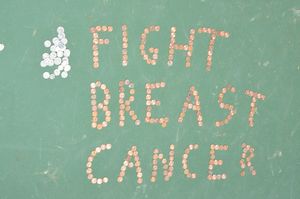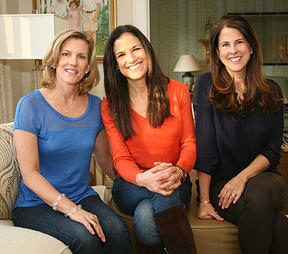Rye Youth Council on Dealing with Loss
In the wake of the loss of Henry "Hank" McWilliam, the Rye Youth Council's Director of Teen Services Casey Carlucci DeCola has issued a piece on helping young peopkle deal with loss:
"Deeply saddened, the Rye Youth Council joins the community in mourning the death of RHS senior Hank McWilliam. Our thoughts and prayers are with his family and friends. We hope the following words and thoughts will support some of you as you help your children deal with this tragic loss.
By Casey Carlucci DeCola, RYC Director of Teen Services
Dealing with a sudden death is shocking and hard to grasp for everyone. As adults, most of us have acquired a variety of coping skills to deal with such difficult news. But teenagers and children are more vulnerable and can be impacted in a multitude of ways when a peer dies unexpectedly.
When our children lose a peer, the closer the relationship, the more difficult it is to bear the thought of the loss and having to move forward in life without them. Even if the peer was not a close friend, the death can be devastating for our children. There are a variety of factors – including biological age, developmental age, personality, their relationship with the deceased, the extent and quality of their support network, their prior experiences with death – that will impact how they will process the experience. For example, take biological/developmental age… since teens are in the process of separating and individuating from their families, they are more prone to turn to their friends and other teens for help and to talk or process what is happening. Since most teens have little experience with death and loss, they may be confused, afraid, unable to express their pain verbally, angry, or may engage in risk-taking behaviors. To further complicate matters, caring adults and parents may be worried about the teen but not know what to do to help someone who refuses their offers to talk about their grief.
HERE ARE SOME STRATEGIES TO HELP YOUR CHILD IN SUCH A SITUATION:
DO remember that grief is as individual as the person experiencing it. Children do not always grieve in the same way that adults do. Some will want to talk about it, but others may not want to talk at all and might become annoyed when you broach the topic.
DO let your child know that you understand and respect their desire to talk or not talk. Let them know you care and that you are there for them.
DO let them know that they may experience a wide range of emotions. Normalize this for them and let them know that grief can make you feel angry, sad, scared, confused, or as if everything is out of control and will never be the same again.
DO NOT rush the process for your child.
DO NOT tell your child/teen to “be strong” – these words hinder the process of mourning and discourage teens from sharing their grief.
DO NOT take it personally if your children/teens would rather speak with their friends to process their grief.
However, DO be vigilant and intervene with understanding and compassion if they are engaging in maladaptive behaviors, including using drugs or alcohol or engaging in risk-taking behaviors and/or activities to cope with their feelings.
SIGNS THAT YOUR CHILD MAY NEED ADDITIONAL SUPPORT AND ASSISTANCE:
- Symptoms of chronic depression, sleeping difficulties, restlessness, anxiety, persistent feelings of guilt and responsibility, low self-esteem
- Difficulty concentrating, academic failure or indifference to school-related activities
- Irritability, angry outbursts, physical fighting
- Risk-taking behaviors such as drug and alcohol abuse, sexual experimentation, speeding (if they drive)
- Somatic complaints – headaches, stomach aches, fatigue
- Social isolation or deterioration of relationships with family and friends
- Nightmares
- Inability to stop thinking and ruminating
- Worrying excessively about something bad happening to them or someone they love
- Suicidal thoughts, plans or actions (these reactions need IMMEDIATE ATTENTION by a mental health professional)
Should you or your family need any additional resources, please email me at cdecola@ryeyouthcouncil.org.
Casey Carlucci DeCola, LMSW, CASAC-T
Rye Youth Council, Director of Teen Services/Youth Advocate"




